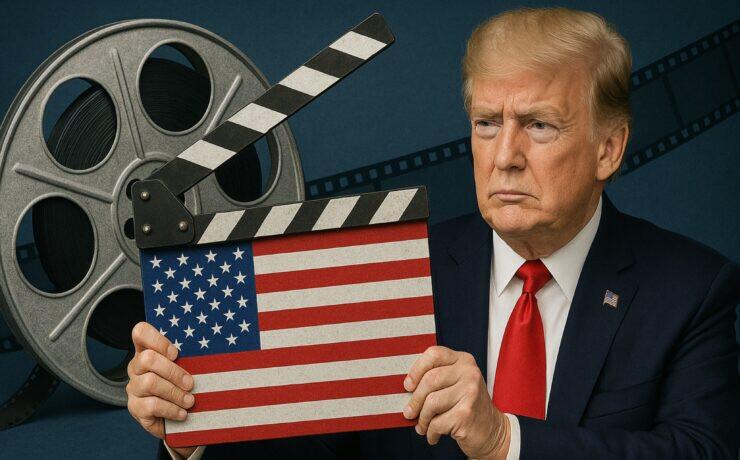
WASHINGTON—U.S. President Donald Trump announced on Monday that he would impose a 100% tariff on all movies produced outside of the United States, a move he claims is necessary to save the American film industry from "being stolen" by other countries. The declaration, made via his Truth Social platform, is an unprecedented attempt to extend protectionist trade policies into the cultural sphere, immediately sending shockwaves through Hollywood and the global entertainment sector.
The President argued that the U.S. movie-making business has been "stolen from the United States of America, by other Countries, just like stealing candy from a baby." He reiterated his belief that foreign nations are drawing production away from the U.S. through incentives and other means.
Targeting Runaway Production and California Leadership
In his post, President Trump specifically called out the state of California, saying the industry has been "particularly hard hit" there due to its "weak and incompetent Governor," a clear jab at Democratic Governor Gavin Newsom. This political maneuver links the struggles of Hollywood—which has seen productions move to states like Georgia or countries like Canada and the U.K. for better tax incentives—directly to a prominent Democratic figure.
"Therefore," Trump wrote, "in order to solve this long time, never ending problem, I will be imposing a 100% Tariff on any and all movies that are made outside of the United States."
This latest announcement echoes a similar threat the President made in May, when he first indicated he was authorizing the Commerce Department and the U.S. Trade Representative (USTR) to explore the idea. However, as with his earlier statement, the President did not provide any specifics on the criteria for a "foreign-made movie," the legal mechanism for imposing a tariff on a service like a film, or a timeline for the duties to take effect.
Industry Reaction and Legal Hurdles
The prospect of a 100% tariff has been met with confusion and skepticism from entertainment executives, legal experts, and trade analysts. Modern filmmaking is a complex, global operation, often involving international co-productions, financing from multiple countries, and post-production and visual effects work spread across the globe. Experts question how a film's origin would be definitively classified under a tariff scheme.
Furthermore, legal analysts point out that the move could violate binding U.S. commitments under the World Trade Organization’s (WTO) General Agreement on Trade in Services (GATS), which generally prohibits discriminatory taxes on cross-border delivery of audiovisual services.
Critics also warn of devastating repercussions for the Hollywood studios the President claims to be protecting. International markets account for more than 70% of total box-office revenue for U.S. films, and a tariff could lead to retaliatory measures by other countries, which would ultimately cripple Hollywood's global earnings. The tariff would also significantly increase the cost for American consumers to access foreign content, including popular global films and digital streaming content.
The movie tariff threat signals a significant escalation in President Trump's use of trade protectionism, now extending to digitally delivered services and intellectual property. The industry now awaits the crucial—and potentially disruptive—details on how, or if, this sweeping measure will be enforced.
[Copyright (c) Global Economic Times. All Rights Reserved.]




























